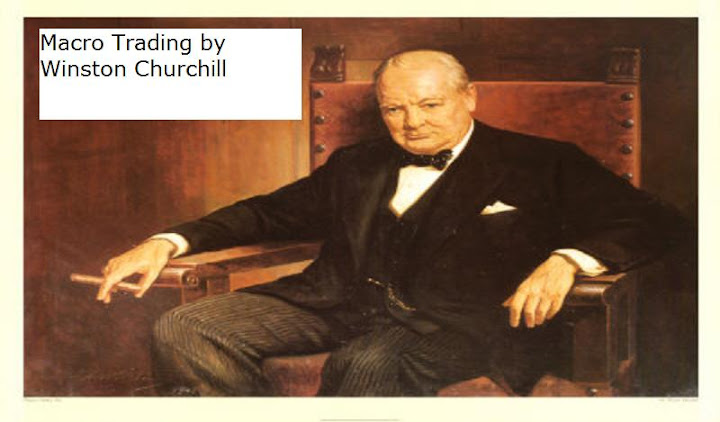Steen's Chronicle
Serial event risk week: ECOFIN, EU Council, US debt dispute
This week is "serial event risk week", with the ECOFIN Meeting on Wednesday, EU Council Meeting on Thursday and then the 22 July self-imposed deadline for dealing with the U.S. debt ceiling. On top of this we have the usual agenda of second-quarter earnings, policy speeches (Federal Reserve Chairman Ben Bernanke testifies on the Dodd-Frank anniversary 21 July) and lack of liquidity during the core of the summer months.This strategy note follows our bullish call from March into May, the correction call: No more Silver bullets and the update It’s all Greek to me where we pointed out a break of 1301/1306 could lead to a two-three week relief rally. Now it’s time to reassess the risk!
Europe – The most likely result is a diluted deal which allows the European Financial Stability Facility to buy bonds on the secondary market (i.e: Greek bonds) while Germany will insist on some sort of private participation. In order to get ahead of the markets a deal should and could involve some “further commitments” from both Spain and Italy on austerity and willingness to help out. It seems unlikely this Greek bail-out version 2.0 will do the necessary job in terms of securing and containing long-term risk of ever higher funding costs for Southern Europe and as such a “more of the same deal” is the most negative for medium and long-term risk.
The market is finally realising that countries with “HHL – disease” – High deficits, High debt, Low growth – need more than cutting costs and spending in order to move forward. It’s like an automatic transmission in a car. There are three directions: forwards (drive), backwards (reverse) and neutral:
"Drive": would plainly involve acknowledging Europe is one entity: i.e. one credit risk, one monetary policy, one banking system and one fiscal policy. The indirect route to what now seems politically untenable is to issue bonds on behalf of the EFSF, which effectively will mean one creditor and one Europe, as these bonds would be guaranteed by a collective Europe and in reality bankrolled by Germany. The very issuance would be the first step towards this fiscal union. There is no way Europe and any of its countries can afford to let the EFSF or the European Stability Mechanism go bust – hence the indirect route to fiscal union, but the forward gear also needs to involve a plan for growth and productivity.
"Neutral": is the most likely scenario and involves more of the same, i.e. version 2.0 will deal with Greece’s acute liquidity issues, it may reduce some of the debt burden and it will almost certainly include some buy-back of Greek bond issues, but it will fail to deal with the growing contagion into Spain and Italy. Let me again point out that Spain and Italy are witnessing higher rates not exclusively due to Greece but also due to failing to address their HHL-disease in time.
"Reverse": is a scenario which only concerns Greece – a pure, buy-more-time deal which will roll the political decisions on into the near future. This is the preferred version for 95% of all politicians, as they seem to live and die by the premise: If the opportunity cost of doing nothing is free, then do nothing. I fear the policy makers still think the opportunity costs are zero, as they continue to live in a fantasy world vis-à-vis Greek default, the need for creating growth agenda et al.
Added to this is the U.S. earnings season which is upon us and the expectation is that companies overall will beat estimates again, if not only because they have massively downgraded their expected earnings in the lead up to the reporting season. Early signs confirm the picture that U.S. companies with overseas earnings will do well based on “currency impact on earnings” while domestic/retail oriented companies will fall below expected earnings expectations. Look no further than to last night’s failure of well-known Borders to find new investors. In the retail space you can move volumes, but margins are depressed as consumers seem to be continuing deleveraging, and unfortunately, stimulus has worn off leaving only deflationary forces in place.
Lastly, in terms of the U.S. debt ceiling, a deal will come. I do not think the U.S. administration will risk debt default, even if only temporarily, so as time goes on President Obama will become more eager to strike a USD 1 or 2 trillion deal. At the end of the day I think the two political sides agree on the need for fiscal prudence. The deadline remains set for 22 July.
Conclusion:
We remain with our call for a test of 1200/1210 for now – this is a correction – before we get a policy response from the Federal Reserve towards QE3 or Operation Twist. The Fed and the U.S. administration will not allow the market to drop more than 10-15 percent from the top before acting – we saw early signs of Fed Chairman Ben Bernanke starting this process last week and it will continue.
In Europe the thing to watch is the interbank market – short-term rates are slightly bid and the European bank stress test results could lead to some lowered money market lines with counterparts from credit-aware banks. Most crises start with the economy and companies having good long-term prospects but no liquidity to get there – a telling comparison to today’s world – the credit cake gets smaller and smaller and hence the need to continue deleveraging.
Keeping the powder dry remains our directional call – with downside potential of 10 percent from here 1305.00 S&P cash index.
.jpg)




No comments:
Post a Comment